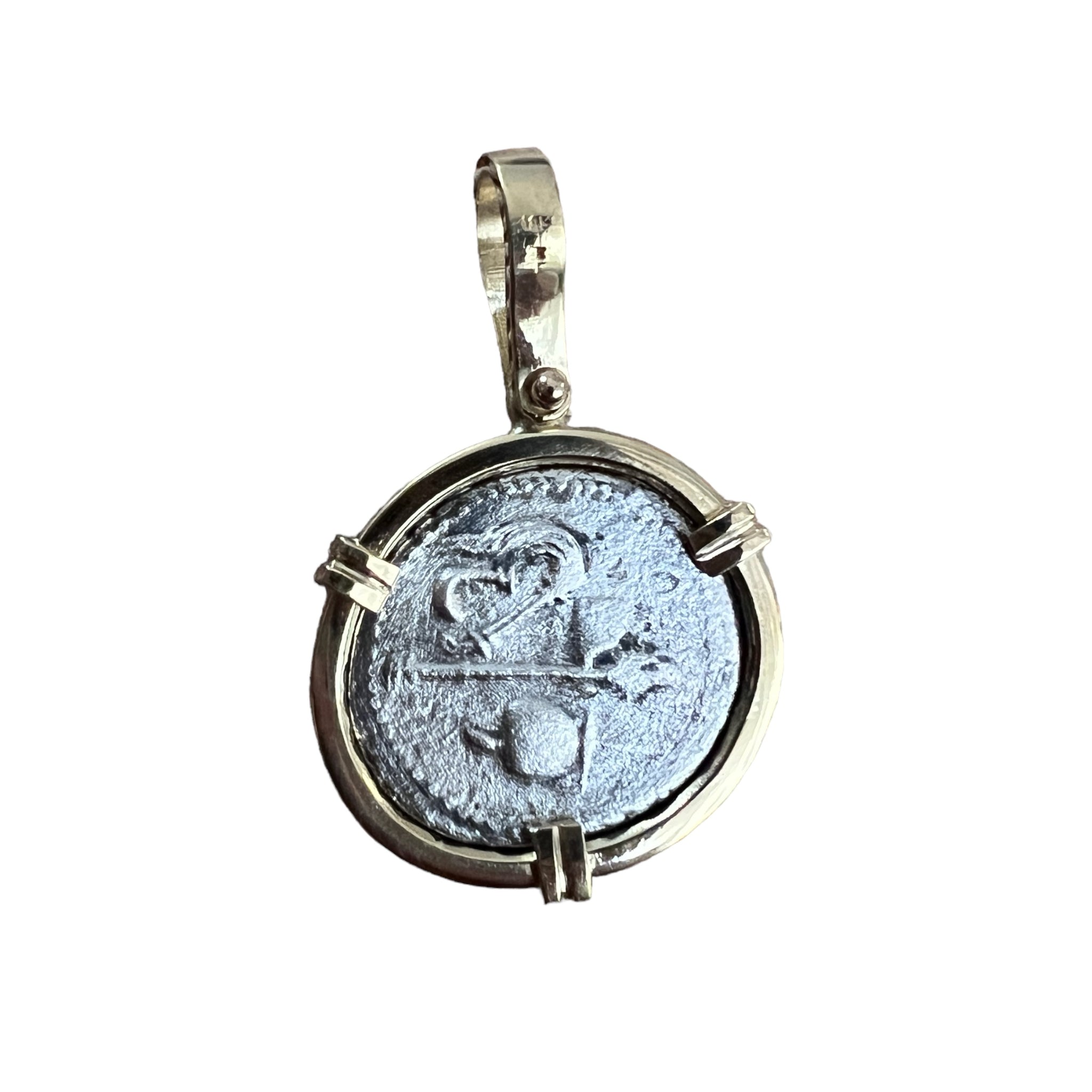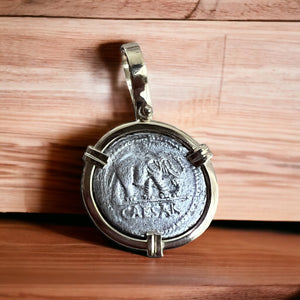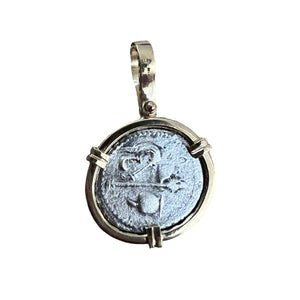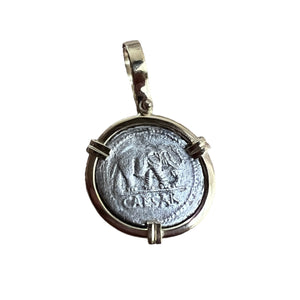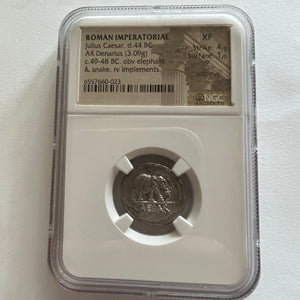Ancient Greece - Julius Caesar (AR Denarius) mounted in 18K gold
$4,200
Denomination: AR Denarius
Date: 49-48 BC
Mint: Rome
Weight: 3.09 grams
Grade: NGC 6557660-023 – XF – Strike 4/5, Surface 1/5
Description: Roman Imperatorial, Julius Caesar, AR Denarius. Obverse: Elephant walking right trampling on a carnyx (a Celtic war trumpet) ornamented to look like a dragon, “CAESAR” below. Reverse: Implements of the pontificate: culullus (cup) or simpulum (ladle), aspergillum (sprinkler), securis (sacrificial ax), and apex (priest's hat).
History: Minted after his invasion of Italy and crossing of the Rubicon on 10 January 49 B.C. until his defeat of Pompey at Pharsalus, this was the first coin type issued in Caesar's name. The elephant was the symbol of the Caesar family. According to legend, an ancestor received the name Caesar after single-handedly killing an elephant, probably in North Africa during the First Punic War, and 'Caesai' was the name for elephant in the local Punic language. The obverse was long described as an elephant trampling a snake, symbolizing good triumphing over evil. For the Romans, however, the snake was a symbol of healing, not evil. The image to the right is ornamentation on the side of the Gundestrup cauldron (c. 150 - 1 B.C.) depicting three Celtic warriors sounding their carnyx war trumpets. Clearly, Caesar's elephant is trampling a carnyx and the obverse symbolizes Caesar's victory over the Celtic tribes of Gaul. The reverse refers to Caesar's office of Pontifex Maximus, the high priest of Rome, a title now held by the Pope.
6557660-023


